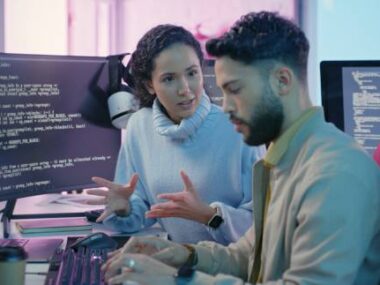Expressing interest in a job after an interview is a crucial step in demonstrating your enthusiasm and reinforcing your fit for the role.
Following up effectively can set you apart from other candidates and leave a positive impression on your potential employer.
This process involves more than just sending a polite thank-you note; it’s about strategically communicating your continued interest and eagerness to contribute to the company.
In this guide, we’ll explore key strategies for crafting compelling follow-up messages, the importance of timing, and common pitfalls to avoid, ensuring you make a memorable and professional impact after your interview.
How to Express Interest in a Job after Interview
Following up after an interview is a crucial step that can significantly impact your chances of securing a job offer. It not only reaffirms your interest in the position but also keeps you top of mind for the hiring team.
A well-timed and thoughtful follow-up demonstrates professionalism, enthusiasm, and genuine interest in the role, which can help distinguish you from other candidates.
It also provides an opportunity to reiterate your key qualifications and address any concerns that may have arisen during the interview.
Crafting a Thoughtful Follow-Up Email
A follow-up email is the most common and effective way to express interest in a job after an interview. Your email should be concise, professional, and personalized.
Start with a thank-you note to express gratitude for the opportunity to interview.
Next, highlight specific aspects of the conversation that reinforced your interest in the role.
Mention how your skills align with the company’s needs and reiterate your enthusiasm for the position.
Finally, express your willingness to provide any additional information or answer further questions.
Keep the tone positive and professional, and avoid any negative comments or unnecessary self-promotion.
Timing Your Post-Interview Communication
Timing is crucial when sending a follow-up email. Ideally, you should send your thank-you note within 24 hours of the interview.
This promptness shows that you are eager and attentive. If you have not heard back from the company within the timeframe they indicated for making a decision, it is acceptable to send a follow-up email after a week or two.
However, avoid appearing impatient by sending multiple follow-ups or contacting the interviewer too frequently.
What to Include in Your Follow-Up Message
In your follow-up message, include the following key elements:
- Personalization: Address the interviewer by name and reference specific topics discussed during the interview.
- Gratitude: Thank them for their time and the opportunity to learn more about the role and the company.
- Reiteration of Interest: Clearly state your continued interest in the position and why you believe you are a strong fit.
- Value Addition: Highlight any additional points or information that reinforce your qualifications or clarify any points discussed during the interview.
- Next Steps: Indicate your eagerness to move forward in the process and ask if there is any further information you can provide.
Expressing Enthusiasm Without Being Overbearing
While it’s important to convey your enthusiasm, balance is key.
Overloading your follow-up message with excessive praise or repeated pleas for the job can be off-putting.
Instead, focus on expressing genuine interest and excitement about the opportunity and the company.
Acknowledge the interviewer’s role in the process and subtly reinforce how you see yourself contributing to the team and company’s goals.
Sample Follow-Up Emails to Inspire Your Message
Here are a couple of examples to help guide your follow-up email:
Example 1:
“Dear [Interviewer’s Name],
Thank you for taking the time to speak with me about the [Position Title] role at [Company Name].
I enjoyed learning more about the team and the exciting projects you are working on.
Our conversation only strengthened my enthusiasm for this position, particularly the opportunity to [specific aspect of the job discussed].
I believe my background in [specific skill or experience] would allow me to contribute effectively to your team.
Please let me know if there is any additional information I can provide.
Thank you once again for the opportunity.
Best regards,
[Your Name]”
Example 2:
“Hi [Interviewer’s Name],
I wanted to express my appreciation for the interview on [Date]. It was great to discuss how my experience with [specific project or skill] aligns with the goals of [Company Name].
I am very excited about the possibility of contributing to your team and believe my background in [specific area] would be a great fit for the [Position Title] role.
Please let me know if there are any next steps or further details needed.
Thanks again for your time and consideration.
Best,
[Your Name]”
Using Phone Calls as a Follow-Up Strategy
In some cases, a phone call can be an effective way to follow up, especially if you had a strong rapport with the interviewer or if the company culture is more informal.
A phone call allows for a more personal touch and immediate interaction.
Keep the call brief, professional, and focused on expressing your continued interest and asking if there are any updates regarding the hiring process.
Conclusion
By following these guidelines, you can effectively express your interest in a job after an interview and enhance your chances of receiving a positive response.





